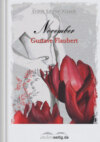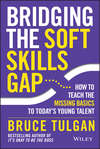Kitabı oku: «Stray Pearls: Memoirs of Margaret De Ribaumont, Viscountess of Bellaise», sayfa 6
CHAPTER VIII. – MARGUERITE TO THE RESCUE
It was in my favour that M. de Nidemerle had conceived a very high opinion of me, far above my deserts. My dear husband’s letters had been full of enthusiasm for me. I found them all among the Marquis’s papers; and his tenderness and gratitude, together with the circumstances of my return, had invested me with a kind of halo, which made me a sort of heroine in his eyes.
Besides, I did my best to make the old man’s life more cheerful. I read him the Gazette that came once a week, I played at cards with him all the evening, and I sometimes even wrote or copied his letters on business; and, when I sat at my embroidery, he liked to come and sit near me, sometimes talking, playing with Gaspard, or dozing. He was passionately fond of Gaspard, and let the child domineer over him in a way that sometimes shocked me.
Thus he was ready to believe what I told him of his niece, and assured me I might keep her with me as long as I wished, if the Countess, her mother-in-law, would consent. The first thing we did together was that I took her to see her children. The boy was at a farm not very far off; he was seven months old, and a fine healthy infant, though not as clean as I could have wished; but then Tryphena and I had been looked on as barbarians, who would certainly be the death of Gaspard, because we washed him all over every evening, and let him use his legs and arms. Cecile was enchanted; she saw an extraordinary resemblance between her son and his father; and hugged the little form like one who had been famished.
Our search for the little Armantine was less prosperous. Cecile could not ride, nor could even walk a quarter of a mile without nearly dying of fatigue; nay, the jolting of the coach as we drove along the road would have been insupportable to her but for her longing to see her little one. We drove till it was impossible to get the coach any farther, and still the farm was only just in sight.
I jumped out and said I would bring the child to her, and I went up between the hedges with two lackeys behind me, till I came to a farmyard, where three or four children, muddy up to the very eyes, were quarrelling and playing with the water of a stagnant pool. I made my way through animals, dogs, and children, to the farm kitchen, where an old grandmother and a beggar sat on two chairs opposite to one another, on each side of the fire, and a young woman was busy over some raw joints of an animal. They stared at me with open mouths, and when I said that Madame la Comtesse d’Aubepine was come to see her child, and was waiting in the carriage, they looked as if such a thing had never been heard of before. The young woman began to cry—the old woman to grumble. I think if they had dared, they would have flown into a passion, and I was really alarmed lest the child might be sick or even dead. I told them impressively who I was, and demanded that they would instantly show me the little one.
The young woman, muttering something, stepped out and brought in her arms the very dirtiest child of the whole group I had left in the gutter, with the whole tribe behind her. My first impulse was to snatch it up and carry it away to its mother, taking it home at once to Nid de Merle; but it squalled and kicked so violently when I held out my arms to it, that it gave me time to think that to carry it thus away without authority might only bring Cecile into trouble with those who had the mastery over her, and that to see it in such a condition could only give her pain. I should not have objected to the mere surface dirt of grubbing in the farmyard (shocking as it may sound to you, Mademoiselle mes Petites Filles). Eustace and I had done such things at Walwyn and been never the worse for it; but this poor little creature had a wretched, unwholesome, neglected air about her that made me miserable, and the making her fit to be seen would evidently be a long business, such as could hardly be undertaken in the midst of the salting of a pig, which was going on.
I therefore promised the woman a crown if she would make the child tidy and bring her to Nid de Merle on the Sunday. Something was muttered about Mademoiselle having said the child was not to be constantly brought to the house to incommonde Madame la Comtesse; but I made her understand that I meant Nid de Merle, and trusted that the hope of the money would be a bait.
Cecile was sorely disappointed when I returned without the child, and conjured me at once to tell her the worst, if it were indeed dead; but she let herself be pacified by the hope of seeing it on Sunday, and indeed she was half dead with fatigue from the roughness of the road.
The child was duly brought by the foster-mother who was in the full costume of a prosperous peasant, with great gold cross and gay apron; but I was not better satisfied about the little on, though she had a cleaner face, cap, and frock. Unused to the sight of black, she would let neither of us touch her, and we could only look at her, when she sat on her nurse’s knee with a cake in her hand. I was sure she was unhealthy and uncared for, her complexion and everything about her showed it, and my Gaspard was twice her size. It was well for the peace of the young mother that she knew so little what a child ought to be like, and that her worst grief was that the little Armantine would not go to her.
‘And oh! they will send her straight into a convent as soon as she is weaned, and I shall never have her with me!’ sighed Cecile.
‘ON’ ON had done many harsh things towards my poor little sister-in-law, and I began now to consider of whom ON now consisted. It seemed to me to be only Mademoiselle de Gringrimeau acting in the name of the doting Countess and the absent husband, and that one resolute effort might emancipate the poor young thing.
I was still considering the matter, and rallying my forces, when a message came from the Chateau l’Aube that Madame la Douariere was dying, and Madame la Comtesse must return instantly. I went with her; I could not let her return alone to Mademoiselle’s tender mercies, and the Marquis approved and went with us. In fact, the two chateaux were not two miles apart, through the lanes and woods, though the way by the road was much longer.
The old Countess lingered another day and then expired. Before the funeral ceremonies were over, I had seen how Mademoiselle de Gringrimeau tyrannise over this young sister-in-law, who was still a mere gentle child, and was absolutely cowed by the woman. When I tried to take her home with me, Mademoiselle had the effrontery to say that the Count himself, as well as the late dowager, had given her authority over Madame as dame de compagnie, and that she did not consider it etiquette to visit after so recent a bereavement, thus decidedly hitting at me.
However, I had made up my mind. I entreated my poor weeping Cecile to hold out yet a little longer in hope; and then I returned home to lay the whole situation before the Marquis, and to beg him to assert his authority as uncle, and formally request that she might reside under his protection while her husband was with the army—a demand which could hardly fail to be granted.
I wrote also to M. d’Aubepine, over whom I thought I had some influence, and added likewise a letter to my half-brother De Solivet, explaining the situation, and entreating him to get the young gentleman into his lodgings, and not let him out till he had written his letters, signed and sealed them!
The plan answered. In due time our courier returned, and with all we wanted in the way of letters, with one great exception, alas! any true sign of tenderness for the young wife. There was a formal letter for her, telling her to put herself and her children under the charge of her uncle and her brother’s widow, leaving the charge of the chateau and the servants to the intendant and to Mademoiselle de Gringrimeau. The poor child had to imbibe what her yearning heart could extract from the conventional opening and close. I have my share of the budget still, and her it is:—
‘MADAME—You still love to play your part of beneficent angel, and wish to take on your shoulder my impedimenta. Well, be it so then; though I have no hope that you will make thereof (en) anything like yourself. Kissing your hands.
‘LE COMTE D’AUBEPINE.’
His whole family was thus disposed of in two letters of the alphabet (en).
M. de Nidemerle received a polite request to undertake the charge of his niece, and Mademoiselle had likewise her orders, and I heard from my brother how he had smiled at my commands, but had found them necessary, for Armand d’Aubepine had been exactly like a naughty boy forced to do a task. Not that he had the smallest objection to his wife and children being with me—in fact, he rather preferred it; he only hated being troubled about the matter, wanted to go to a match at tennis, and thought it good taste to imitate the Duke of Enghien in contempt for the whole subject. Would he ever improve? My brother did not give much present hope of it, saying that on returning to winter quarters he had found the lad plunged all the deeper in dissipation for want of the check that my dear husband had been able to impose on him; but neither M. de Solivet nor the Marquis took it seriously, thinking it only what every youth in the army went through, unless he were such a wonderful exception as my dear Philippe had been.
Cecile could hardly believe that such peace and comfort were in store for her, and her tyrant looked as gloomy as Erebus at losing her slave, but we did not care for that; we brought her home in triumph, and a fortnight’s notice was given to the foster-mother in which to wean Mademoiselle d’Aubepine and bring her to Nid de Merle.
That fortnight was spent by our guest in bed. As if to justify Mademoiselle de Gringrimeau, she was no sooner under my care than she had a sharp illness; but Tryphena, who had been so instructed by my grandmother, Lady Walwyn, as to be more skilful than any doctor, declared that it was in consequence of the long disregard of health and strain of spirits, and so managed her that, though never strong, she improved much in health, and therewith in looks. Beautiful she could hardly be, as the world counts beauty, but to me her sweet, tender, wistful expression made her countenance most lovable, and so did her gentle unmurmuring humility. She sincerely believed that all the cruel slights she underwent were the result of her own ugliness, stupidity, and ignorance, and instead of blaming her husband, she merely pitied him for being tied to her. As to grating that her brother had been a better man than her husband, she would have thought that high treason—the difference was only that her dear Marguerite was so pretty, so clever, amiable, and well taught, that she had won his heart.
In truth, I had outgrown the ungainliness of my girlhood, and, now that it did not matter to any one, had become rather a handsome woman, and it was of no use to tell her that I had been worse than she, because there was so much more of me, when my dear young husband gave me the whole of his honest heart.
To make herself, at least, less dull was her next desire. One reason why she had so seldom written was that she knew she could not spell, and Mademoiselle insisted on looking over her letters that they might not be a disgrace. I doubted whether M. le Comte would have discovered the errors, but when the Marquis praised some letters that I had written to amuse him from Nancy and Mezieres, she was fired with ambition to write such clever letters as might bewitch her husband. Besides, if she could teach her daughter, the child need not be banished to a convent.
I began to give her a few lessons in the morning, and to read to her. And just then there came to Nid de Merle, to see me, the good Abbe Bonchamp, the excellent tutor to whom my dear Philippe always said he owed so much. The good man had since had another employment, and on quitting it, could not help gratifying his desire to me and see the wife and child of his dear pupil, as indeed I had begged him to do, if ever it were in his power, when I fulfilled my husband’s wishes by writing his last greeting and final thanks to the good man.
I remember the dear quaint form riding up on a little hired mule, which he almost concealed with his cassock. Above, his big hat looked so strange that Gaspard, who was wonderfully forward for his age, ran up to me crying: ‘A droll beast, mamma! it had four legs and a great hat!’ while little Armantine fled crying from the monster.
All the servants were, however, coming out eagerly to receive the blessing of the good man, who had mad himself much beloved in the household. The Marquis embraced him with tears, and presented him to me, when he fell on his knee, took my hand, pressed it to his lips and bathed it with his tears, and then held Gaspard to his breast with fervent love.
It was necessary to be cheerful before M. de Nidemerle. He had truly loved his nephew, and mourned for him, but the aged do not like a recurrence to sorrow, so the abbe amused him with the news brought from Saumur, and our party at cards was a complete one that evening.
But the next day, the Abbe, who had loved his pupil like a son, could talk of him to me, and it was a comfort I cannot express to my aching heart to converse with him. Everything had settled into an ordinary course. People fancied me consoled; I had attended to other things, and I could not obtrude my grief on the Marquis or on Cecile; but on! My sick yearning for my Philippe only grew the more because I might not mention him or hear his name. However, the Abbe only longed to listen to all I could tell him of the last three years, and in return to tell me much that I should never otherwise have known of the boyhood and youth of my dear one.
I felt as if the good man must never leave us, and I entreated M. de Nidemerle to retain him at once as governor to little Gaspard. The Marquis laughed at securing a tutor for a child not yet three years old; but he allowed that the boy could not be in better hands, and, moreover, he was used to the Abbe, and liked to take his arm and to have him to make up the party at cards, which he played better than the cure.
So the Abbe remained as chaplain and as tutor, and, until Gaspard should be old enough to profit by his instructions, Cecile and I entreated him to accept us as pupils. I had begun to feel the need of some hard and engrossing work to take off my thoughts alike from my great sorrow and my pressing anxieties about my English home, so that I wished to return to my Latin studies again, and the Abbe helped me to read Cicero de Officiis again, and likewise some of the writings of St. Gregory the Great. He also read to both of us the Gospels and Mezeray’s HISTORY OF FRANCE, which I did not know as an adopted Frenchwoman ought to know it, and Cecile knew not at all; nay, the nuns had scarcely taught her anything, even about religion, nor the foundations of the faith.
No, I can never explain what we, both of us, owe to the Abbe Bonchamp. You, my eldest grandchild, can just recollect the good old man as he sat in his chair and blessed us ere he passed to his rest and the reward of his labours.
CHAPTER IX. – THE FIREBRAND OF THE BOCAGE
Yes, the life at Nid de Merle was very peaceful. Just as exquisitely happy it was in spite of alarms, anxieties, perplexities, and discomforts, so when I contemplate my three years in Anjou I see that they were full of peace, though the sunshine of my life was over and Cecile had never come.
We had our children about us, for we took little Maurice d’Aubepine home as soon as possible; we followed the course of devotion and study traced for us by the Abbe; we attended to the wants of the poor, and taught their children the Catechism; we worked and lived like sisters, and I thought all that was life to me was over. I forgot that at twenty-two there is much life yet to come, and that one may go through many a vicissitude of feeling even though one’s heart be in a grave.
The old Marquis did not long remain with us. He caught a severe cold in the winter, and had no strength to rally. Tryphena would have it that he sank from taking nothing but tisanes made of herbs; and that if she might only have given him a good hot sack posset, he would have recovered; but he shuddered at the thought, and when a doctor came from Saumur, he bled the poor old gentleman, faintings came on, and he died the next day. I was glad Tryphena’s opinion was only expressed in English.
The poor old man had been very kind to me, and had made me love him better than I should have supposed to be possible when we crossed from Dover. The very last thing he had done was to write to my mother, placing his hotel at Paris at her disposal in case she and her son should find it expedient to leave England; and when his will was opened it proved that he had left me personal guardian and manager of the estates of his heir, my little Gaspard, now M. de Nidemerle, joining no one with me in the charge but my half-brother the Baron de Solivet.
I had helped him, read letters to him, and written them for him, and overlooked his accounts enough for the work not to be altogether new and strange to me, and I took it up eagerly. I had never forgotten the sermon by the holy Father Vincent, whom the Church has since acknowledged as a saint, and our excellent Abbe had heightened the impression that a good work lay prepared for me; but he warned me to be prudent, and I am afraid I was hot-headed and eager.
Much had grieved me in the six months I had spent in the country, in the state of the peasantry. I believe that in the Bocage they are better off than in many parts of France, but even there they seemed to me much oppressed and weighed down. Their huts were wretched—they had no chimneys, no glass in the windows, no garden, not even anything comfortable for the old to sit in; and when I wanted to give a poor rheumatic old man a warm cushion, I found it was carefully hidden away lest M. l’Intendant should suppose the family too well off.
Those seigniorial rights then seemed to me terrible. The poor people stood in continual fear either of the intendant of the king or of the Marquis, or of the collector of the dues of the Church. At harvest time, a bough was seen sticking in half the sheaves. In every ten, one sheaf is marked for the tithe, tow for the seigneur, two for the king; and the officer of each takes the best, so that only the worst are left for the peasant.
Nay, the only wonder seemed to me that there were any to be had at all, for our intendant thought it his duty to call off the men from their own fields for the days due from them whenever he wanted anything to be done to our land (or his own, or his son’s-in-law), without the slightest regard to the damage their crops suffered from neglect.
I was sure these things ought not to be. I thought infinitely more good might be done by helping the peasants to make the most of what they had, and by preventing them from being robbed in my son’s name, than by dealing out gallons of soup and piles of bread at the castle gates to relieve the misery we had brought on them, or by dressing the horrible sores that were caused by dirt and bad food. I told the Abbe, and he said it was a noble inspiration in itself, but that he feared that one lady, and she a foreigner, could not change the customs of centuries, and that innovations were dangerous. I also tried to fire with the same zeal for reformation the Abbess of Bellaise, who was a young and spirited woman, open to conviction; but she was cloistered, and could not go to investigate matters as I did, with the Abbe for my escort, and often with my son. He was enchanted to present any little gift, and it was delightful that the peasants should learn to connect all benefits with Monsieur le Marquis, as they already called the little fellow.
I think they loved me the better when they found that I was the grandchild of the Madame Eustace who had been hidden in their cottages. I found two or three old people who still remembered her wanderings when she kept the cows and knitted like a peasant girl among them. I was even shown the ruinous chamber where my aunt Thistlewood was born, and the people were enchanted to hear how much the dear old lady had told me of them, and of their ways, and their kindness to her.
I encouraged the people to make their cottages clean and not to be afraid of comforts, promising that our intendant at least should not interfere with them. I likewise let him know that I would not have men forced to leave their fields when it would ruin their crops, and that it was better that ours should suffer than theirs. He was obsequious in manner and then disobeyed me, till one day I sent three labourers back again to secure their own hay before they touched ours. And when the harvest was gathered in the Abbe and I went round the fields of the poor, and I pointed out the sheaves that might be marked, and they were not the best.
I taught the girls to knit as they watched their cows, and promised to buy some of their stockings, so that they might obtain sabots for themselves with the price. They distrusted me at first, but before long, they began to perceive that I was their friend, and I began to experience a nice kind of happiness.
Alas! even this was too sweet to last, or perhaps, as the good Abbe warned me, I was pleasing myself too much with success, and with going my own way. The first murmur of the storm came thus: I had been out all the afternoon with the Abbe, Armantine’s bonne, and the two children, looking at the vineyards, which always interested me much because we have none like them in England. In one, where they were already treading the grapes, the good woman begged that M. le Marquis and Mademoiselle would for once tread the grapes to bring good luck. They were frantic with joy; we took off their little shoes and silk stockings, rolled them up in thick cloths, and let them get into the trough and dance on the grapes with their little white feet. That wine was always called ‘the Vintage of le Marquis.’ We could hardly get them away, they were so joyous, and each carried a great bunch of grapes as a present to the little boy at home and his mother.
We thought we saw a coachman’s head and the top of a carriage passing through the lanes, and when we came home I was surprised to find my sister-in-law in tears, thoroughly shaken and agitated.
Mademoiselle de Gringrimeau had been to see her, she said, and had told her the Count was in Paris, but had not sent for her; and I thought that enough to account for her state; but when the children began to tell their eager story, and hold up their grapes to her, she burst again into tears, and cried: ‘Oh, my dear sister, if you would be warned. It is making a scandal, indeed it is! They call you a plebeian.’
I grew hot and angry, and demanded what could be making a scandal, and what business Mademoiselle de Gringrimeau had to meddle with me or my affairs.
‘Ah! but she will write to my husband, and he will take me from you, and that would be dreadful. Give it up. Oh, Marguerite, give it up for MY sake!’
What was I to give up? I demanded. Running about the country, it appeared, like a farmer’s wife rather than a lady of quality, and stirring up the poor against their lords. It was well known that all the English were seditious. See what they had done to their king; and here was I, beginning the same work. Had not the Count’s intendant at Chateau d’Aubepine thrown in his teeth what Madame de Bellaise did and permitted? He was going to write to Monseigneur, ay, and the king’s own intendant would hear of it, so I had better take care, and Mademoiselle had come out of pure benevolence to advise Madame la Comtesse to come and take refuse at her husband’s own castle before the thunderbolt should fall upon me, and involve her in my ruin.
I laughed. I was sure that I was neither doing nor intending any harm; I thought the whole a mere ebullition of spite on the duenna’s part to torment and frighten her emancipated victim, and I treated all as a joke to reassure Cecile, and even laughed at the Abbe for treating the matter more seriously, and saying it was always perilous to go out of a beaten track.
‘I thought the beaten track and wide road were the dangerous ones,’ I said, with more lightness, perhaps, than suited the subject.
‘Ah, Madame,’ he returned gravely, ‘you have there the truth; but there may be danger in this world in the narrow path.’
The most effectual consolation that I could invent for Cecile was that if her husband thought me bad company for her, he could not but fetch her to her proper home with him, as soon as peace was made. Did I really think so? The little thing grew radiant with the hope.
Days went on, we heard nothing, and I was persuaded that the whole had been, as I told Cecile, a mere figment of Mademoiselle de Gringrimeau’s.
I had written to beg my mother, with my brother and sister, to come and join us, and I as already beginning to arrange a suite of rooms for them, my heart bounding as it only can do at the thought of meeting those nearest and dearest of one’s own blood.
I remember that I was busy giving orders that the linen should be aired, and overlooking the store of sheets, when Gaspard and Armantine from the window called out: ‘Horses, horses, mamma! fine cavaliers!’
I rushed to the window and recognized the Solivet colours. No doubt the baron had come to announce the arrival of my mother and the rest, and I hastened down to meet him at the door, full of delight, with my son holding my hand.
My first exclamation after the greeting was to ask where they were, and how soon they would arrive, and I was terribly disappointed when I found that he had come alone, and that my mother, with Eustace and Annora, were at the Hotel de Nidemerle, at Paris, without any intention of leaving it. He himself had come down on business, as indeed was only natural since he was joined with me in the guardianship of my little Marquis, and he would likewise be in time to enjoy the chase over the estates.
He said no more of his purpose then, so I was not alarmed; and he seemed much struck with the growth and improvement of Gaspard. I had much to hear of the three who were left to me of my own family. M. de Solivet had never seen them before, and could hardly remember his mother, so he could not compare them with what they were before their troubles; but I gathered that my mother was well in health, and little the worse for her troubles, and that my little Nan was as tall as myself, a true White Ribaumont, with an exquisite complexion, who would be all the rage if she were not so extremely English, more English even than I had been when I had arrived.
‘And my brother, my Eustace. Oh, why did he not come with you?’ I asked.
And M. de Solivet gravely answered that our brother was detained by a suit with the Poligny family respecting the estate of Ribaumont, and, besides, that the rapidity of the journey would not have agreed with his state of health. I only then fully understood the matter, for our letter had been few, and had to be carefully written and made short; and though I knew that, at the battle of Naseby, Eustace had been wounded and made prisoner, he had written to me that his hurt was not severe, and that he had been kindly treated, through the intervention of our cousin Harry Merrycourt, who, to our great regret, was among the rebels, but who had become surety for Eustace and procured his release.
I now heard that my brother had been kept with the other prisoners in a miserable damp barn, letting in the weather on al sides, and with no bedding or other comforts, so that when Harry Merrycourt sought him out, he had taken a violent chill, and had nearly died, not from the wound, but from pleurisy. He had never entirely recovered, though my mother thought him much stronger and better since he had been in France, out of sight of all that was so sad and grievous to a loyal cavalier in England.
‘They must come to me,’ I cried. ‘He will soon be well in this beautiful air; I will feed him with goat’s mild and whey, and Tryphena shall nurse him well.’
M. de Solivet made no answer to this, but told me how delighted the Queen of England had to welcome my mother, whom she had at once appointed as one of her ladies of the bedchamber; and then we spoke of King Charles, who was at Hampton Court, trying to make terms with the Parliament, and my brother spoke with regret and alarm of the like spirit of resistance in our own Parliament of Paris, backed by the mob. I remember it was on that evening that I first heard the name Frondeurs, or Slingers, applied to the speechifiers on either side who started forward, made their hit, and retreated, like the little street boys with their slings. I was to hear a great deal more of that name.
It was not till after supper that I heard the cause of M. de Solivet’s visit. Cecile, who always retired early, went away sooner than usual to leave us together, so did the Abbe, and then the baron turned to me and said: ‘Sister, how soon can you be prepared to come with me to Paris?’
I was astounded, thinking at first that Eustace’s illness must be more serious than he had led me to suppose, but he smiled and said notre frere de Volvent, which was the nearest he could get to Walwyn, had nothing do with it; it was by express command of the Queen Regent, and that I might thank my mother and the Queen of England that it was no worse. ‘This is better than a letter de catche,’ he added, producing a magnificent looking envelope with a huge seal of the royal French arms, that made me laugh rather nervously to brave my dismay, and asked what he called THAT. He responded gravely that it was no laughing matter, and I opened it. It was an official order that Gaspard Philippe Beranger de Bellaise, Marquis de Nidemerle, should be brought to the Louvre to be presented to the King.




















